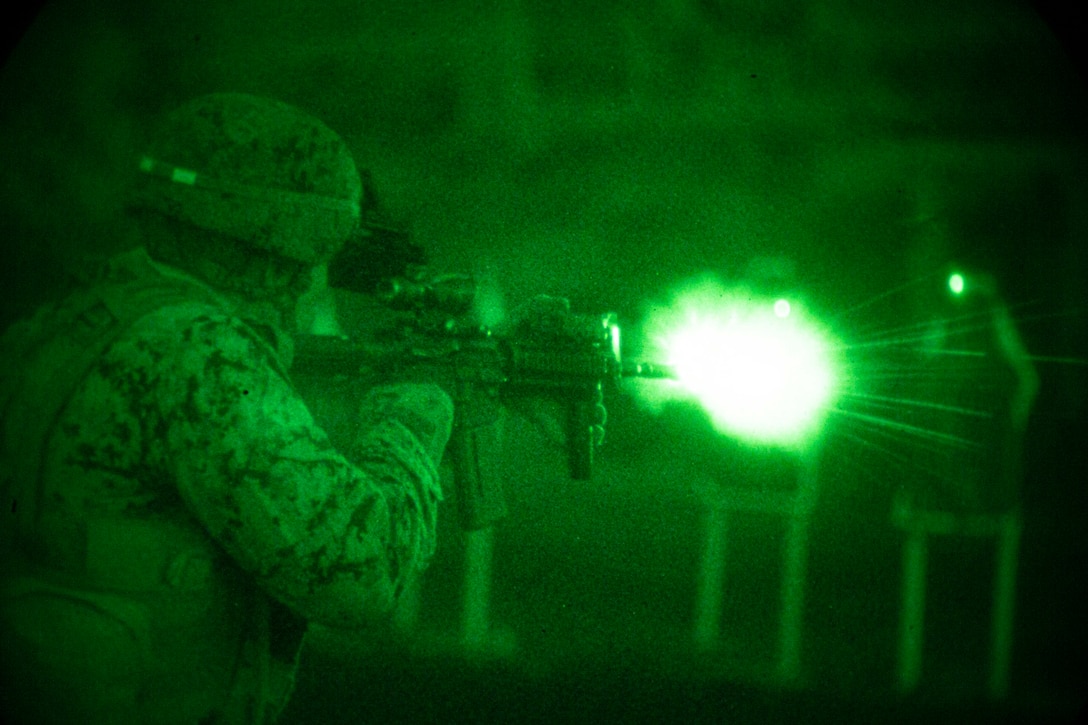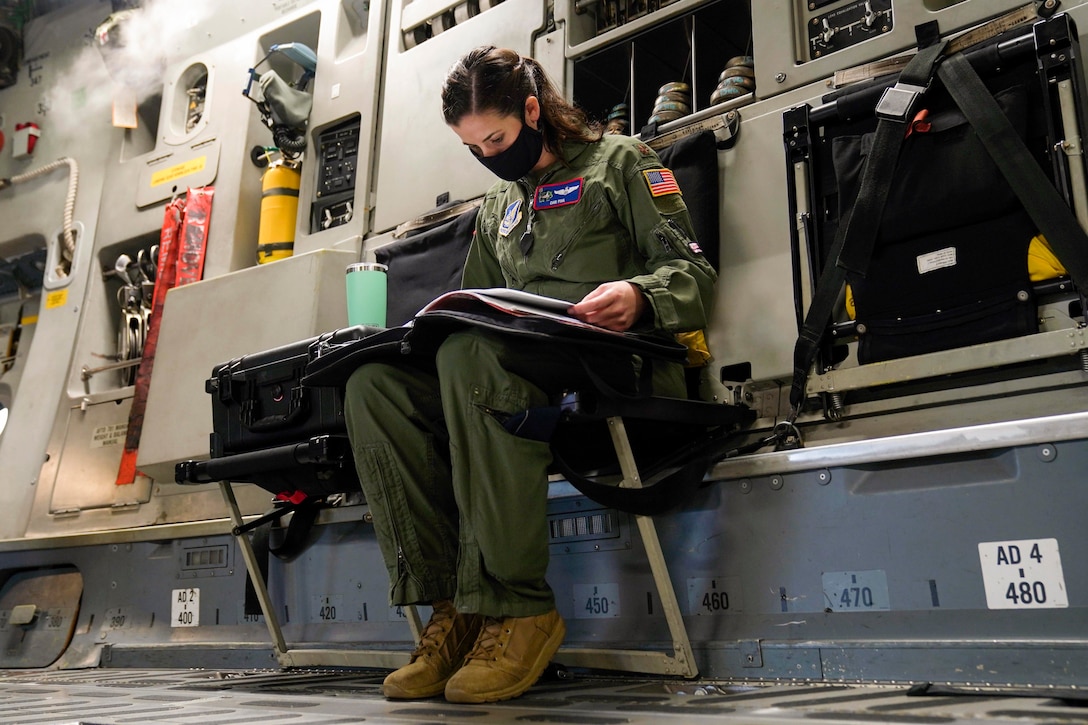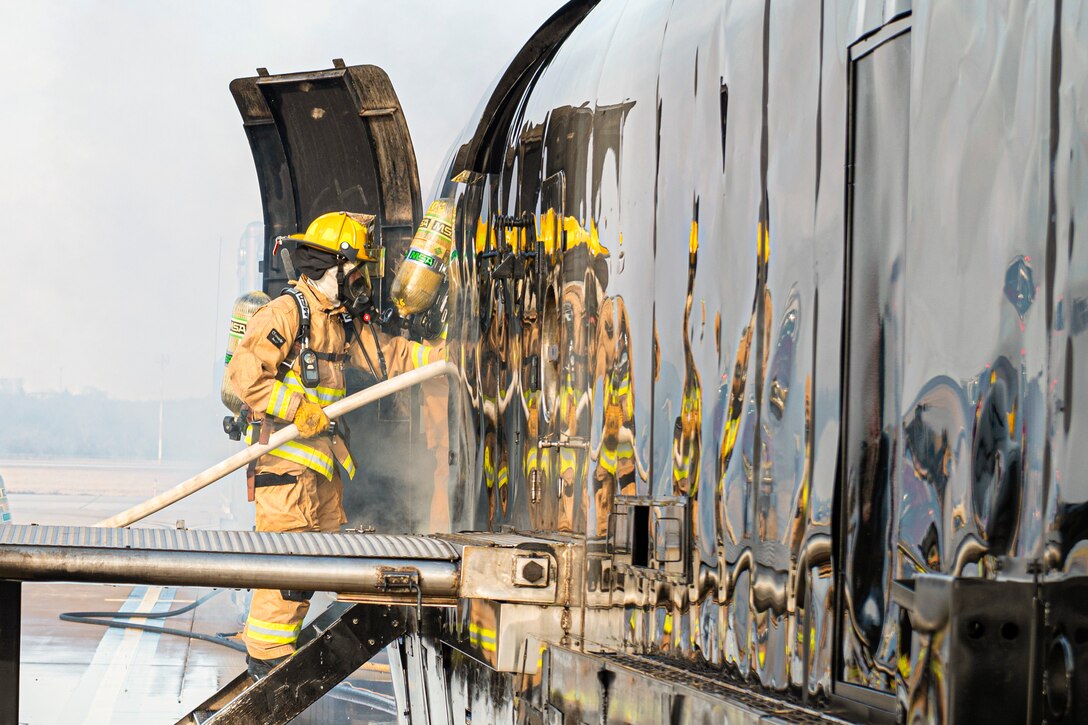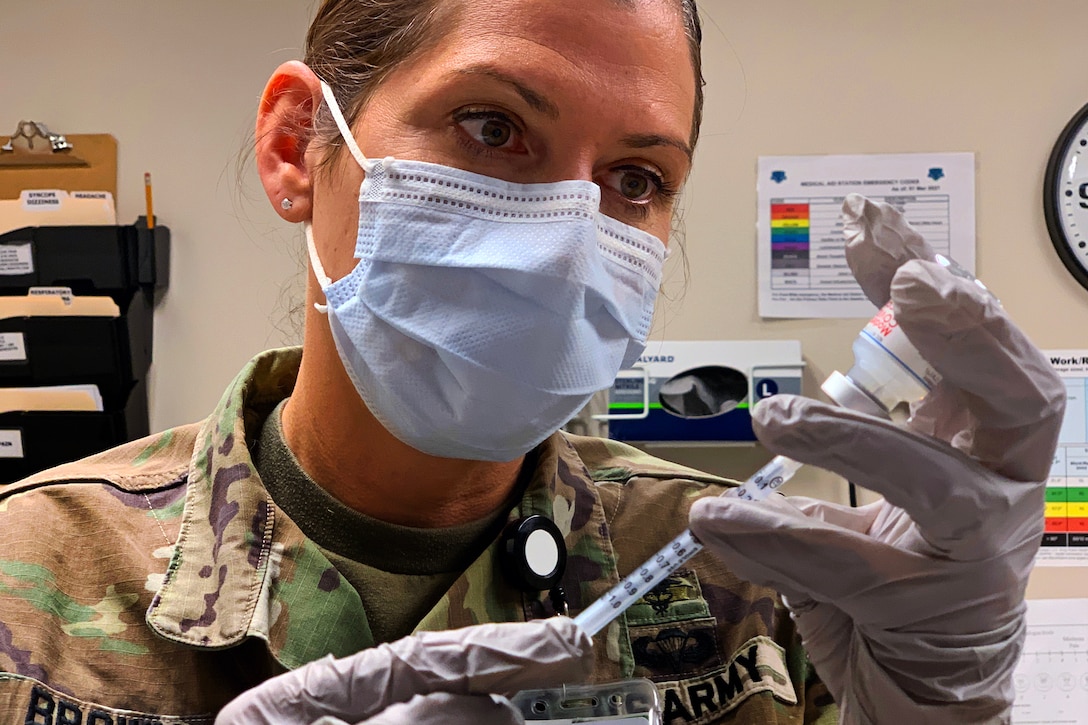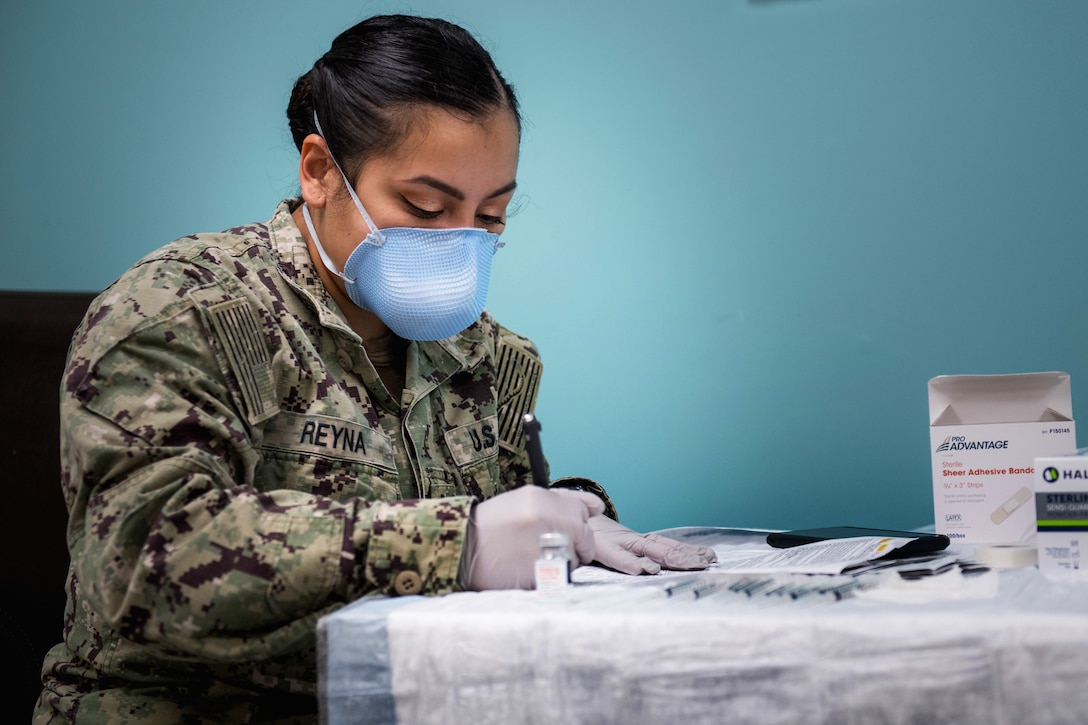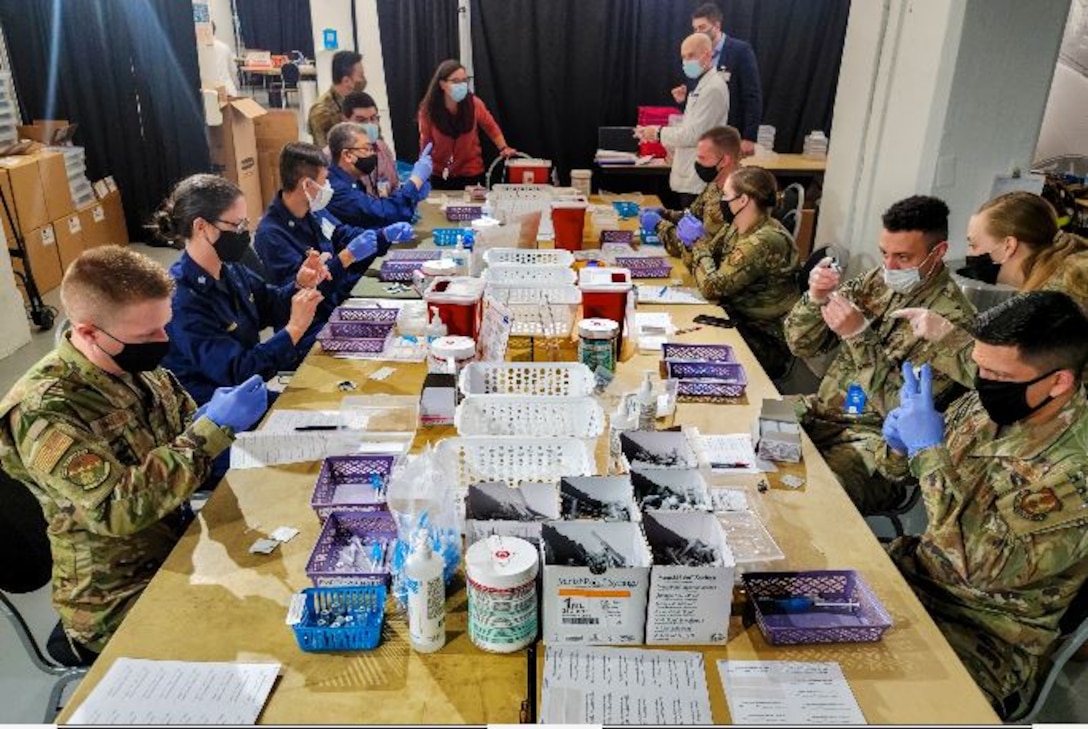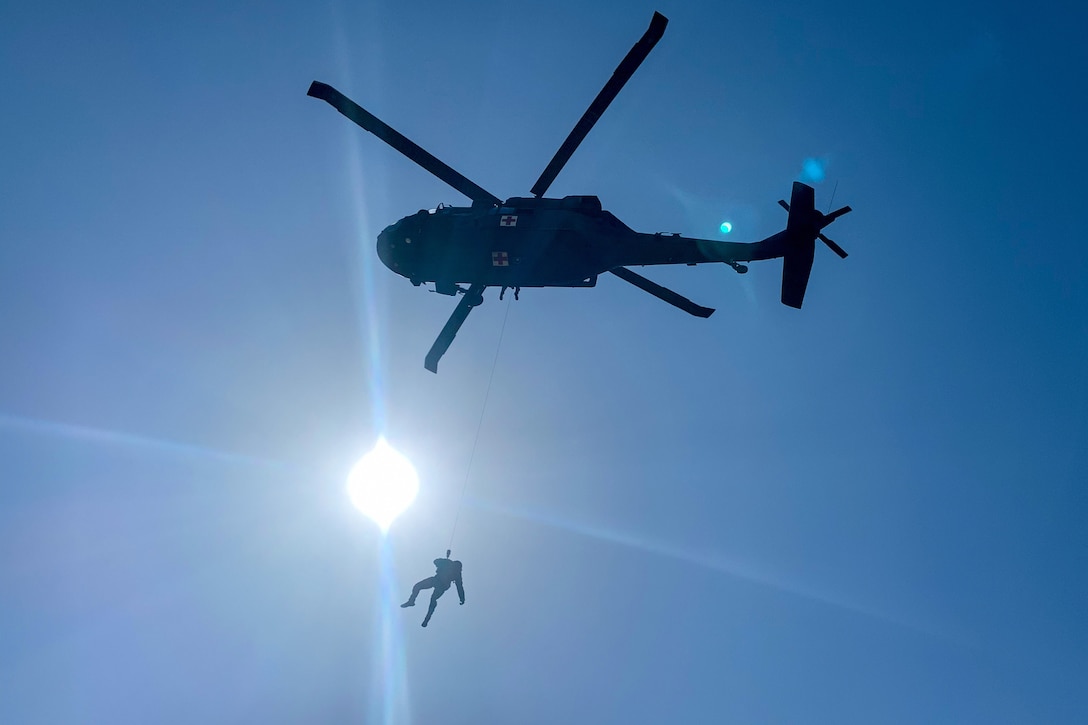March 31, 2021
PRESS SECRETARY JOHN F. KIRBY: Good afternoon. OK. I think as many of you know, today is International Transgender Day of Visibility, and we proudly recognize transgender and gender-non-conforming people and their continued struggle for a life of equality, security and dignity. There is no place for violence and discrimination on the basis of sexual orientation, gender identity or expression, or sex characteristics. The department, along with our partners in the United States, will lead by example in the cause of advancing the human rights of LGBTIQ -- LGBTQI people around the world.
Now, I think you all remember back in January, the president issued two executive orders impacting departmental policy with respect to transgender individuals. Executive Order 13988, which is entitled "Preventing and Combating Discrimination on the Basis of Gender Identity or Sexual Orientation", and Executive Order 14004, entitled Enabling All Qualified Americans to Serve Their Country in Uniform".
In response to those executive orders, the department immediately issued interim guidance to hold in abeyance any adverse personnel actions initiated under previous departmental policy, and directed the identification and review of records of any member involuntarily separated, discharged, or denied reenlistment based on gender identity. This effort -- this review effort is ongoing.
The department also identified and initiated revision to two DOD instructions that affected the military service of transgender individuals. DOD Instruction 6130.03, Volume One is entitled "Medical Standards for Military Service: Appointment, Enlistment or Induction," and DOD Instruction 1300.28, which is entitled "In-Service Transition for Transgender Service members".
Now today, the department is announcing the publication of revised editions of these two instructions. The revised policies in these instructions restore the department's original 2016 policies regarding transgender service. Specifically, they prohibit discrimination on the basis of gender identity or an individual's identification as transgender. They provide a means by which to assess -- access into the military in one's self-identified gender, provided all appropriate standards are met. They provide a path for those in service for medical treatment, gender transition, and recognition in one's self-identified gender and they seek to protect the privacy of all service members and to treat them with dignity and respect at all times.
Now, these policies will be effective in 30 days, affording the military services the necessary time to update service-level policies and provide guidance to commanders, service members, medical professionals, and other communities of practice, as appropriate. During this period, the department's interim guidance, issued on January 29th of this year, remains in effect.
The secretary of defense strongly believes that the all-volunteer force thrives when it is composed of diverse Americans who can meet the high standards for military service, and an inclusive force that strengthen -- strengthens our national security posture. As emphasized from his original statement on this matter, and I quote him here, "The United States Armed Forces are in the business of defending our fellow citizens from our enemies, foreign and domestic. I believe we accomplish that mission more effectively when we represent all our fellow citizens."
He goes on: "I also believe we should avail ourselves of the best possible talent in our population, regardless of gender identity. We would be rendering ourselves less fit to the task if we excluded from our ranks people who meet our standards and who have the skills and devotion to serve -- to serve us in uniform. This is the right thing to do. It is also the smart thing to do."
Now, today, I'm going to ask an expert to come up and handle your questions about this specific issue, and then when that's done, I'll come back up and we'll -- we'll do other news of the day.
So now, I would like to introduce the director of Accession Policy, Ms. Stephanie Miller, up to the podium. She'll be available to answer any questions, and then as I said, we'll move on. I will moderate the questions for her, if that's OK with you. Stephanie.
Our first question will come from Lita Baldor, Associated Press.
Q: Hi, John. Thanks. Stephanie, just -- just a couple of questions on
numbers. The last numbers, I think, that the Pentagon released were that
there were as many as 14,700 active duty and reserves who identified as
transgender. Do you have any updated numbers on the number of troops
that identify as transgender, the number of troops who identified with
gender dysphoria? And then are there any numbers at all on those who
have -- who were either not allowed to reenlist or faced some sort of
administrative action over the last two -- two years, so -- that you can
at least even give us some broad guidelines, or broad estimates of some
of those? Thank you.
MS. MILLER: No, I -- thank you. I appreciate the question and -- and I'll see what I can do to -- to answer all of them.
So as you may be familiar, the department policy actually prohibits the discrimination on the basis of transgender status or gender identity, and in that way, we try to -- to protect the privacy of individuals. But a subset of the transgender population are those that have been medically diagnosed with a -- a diagnosis of gender dysphoria and may be seeking or have completed medical care. And so we are able to provide some data as it relates to those who have had that diagnosis and that are seeking that medical care, and the updated numbers we have are about 2,200 inside the -- the military services.
As it pertains to the department's continuing review of -- of records of individuals who may have been adversely impacted under the previous policy – that work is ongoing, and so we're not prepared to offer any data on that at this time. If an individual has not been contacted, but feels as though that they were adversely impacted, we certainly encourage them to reach out to the service concerned or directly to the department such that we may have an -- a conversation directly with that individual.
Q: Could I just get a follow-up? I just want to clarify something. When you say 2,200, you said inside all the military services. Does that include Guard and Reserve, or is that just active duty, do you know?
MS. MILLER: I -- we will -- I will verify that for you. I believe it -- it is comprehensive to all, but we will double check.
MR. KIRBY: OK. Tom?
Q: Yes, any sense of the medical costs that will be involved here, going into the future, ballpark?
MS. MILLER: So you know, the -- the medical data that we have really indicates that, you know, it -- it's -- it's very small, you know, a handful of a million dollars per year, which is really, you know, covered within the -- the defense health budget of several billion. So we're not anticipating, with these changes and policies, that there's going to be a significant impact in terms of medical costs.
MR. KIRBY: OK, back to the phone. Lara Seligman, did you have one?
Q: Hey, I don't have one for this section. I'll have one later though. Thanks.
MR. KIRBY: OK. Abraham, you have one?
Q: Yes, please. Can you talk about the studies that were done and unit cohesion, has that ever come up? If so, can you give examples either anecdotally in -- where it's been a problem or not been a problem?
MS. MILLER: So today in this announcement, we're really focused on the release of the two new instructions and we're excited to implement that policy moving forward. There is ongoing litigation as it pertains to -- to past policy. And so, we're not prepared at this time to discuss either previous studies or the previous policy.
Q: So any comment at all on -- on the impact on unit cohesion?
MS. MILLER: Not at this time.
MR. KIRBY: OK, we'll try again here. Caitlin Kenney, Stars and Stripes?
Q: Hi, thank you. My question is what are the requirements in these policies for a service member to ask for and receive gender affirming surgery and does the Pentagon have an estimate of how many people would likely require surgery versus being treated with hormones or another treatment? Thanks.
MS. MILLER: So really, we will provide medically necessary care to each individual member as really prescribed in their medical treatment plan. So that's -- that's individual for each case and it's certainly determined with their medical provider. And so, it really runs the gamut in terms of individuals who may only seek cross-sex hormone therapy versus those may pursue a surgical intervention.
And so we don't have data necessarily available to share today on the differences of -- of how many people pursue the full spectrum of the plan. But I think it's important to emphasize that all medically necessary care, to include gender transition surgery, will available under these new policies.
MR. KIRBY: OK, Nancy?
Q: I'm sorry. Can I ask a clarifying question on the 2,200 number? Maybe I didn't understand it correctly. Does that number include the number of service members who identify as transgender? Does that include numbers of people who are -- believe that -- are seeking surgery? I'm trying to understand what the breakdown on that number is specifically.
MS. MILLER: Right. That number represents those service members who've been medically diagnosed with gender dysphoria or any other related diagnostic codes. So the 2,200 is the number that we're presently tracking in our Military Health System Management and Reporting Tool. And we use that for direct and purchased care. So that's what that number represents.
Q: Before the policy changed, there were some service members who identified as transgender who were allowed to, sort of, be grandfathered in after that change. Do you know what that number is?
MS. MILLER: I don't have that number at this time. But certainly those in that previous grandfathered or exempt population will be fully covered under these existing policies.
MR. KIRBY: Let’s go back to the phones here. Dan Sagalyn, do you have one?
Q: I have question on the next section for you...
(CROSSTALK)
MR. KIRBY: All right, OK.
Q: Thank you.
MR. KIRBY: All right, Jeff Schogol?
Q: Thank you. I apologize that I haven't seen the instructions. Are there any scenarios in which otherwise qualified transgender individuals cannot enlist or be commissioned in the military?
MS. MILLER: So the -- the -- the policies that we're publishing today, one is specific to medical accession standards. And so transgender applicants will certainly need to meet all other medical standards, to include those standards that may be associated specifically with cross-sex hormone therapy, a previous diagnosis of gender dysphoria, or any form of surgical intervention.
So there are specific standards associated with those -- those -- those medical conditions or medical/surgical interventions. But certainly individuals would have to meet all other qualifying standards in that instruction.
Q: And if I could follow-up, if the Department determines that transgender individuals were unfairly separated under the old policy, is it possible they could receive back pay?
MS. MILLER: Each situation would have to be looked at individually, which is why we emphasize that if an individual feels as though they were adversely impacted under the previous policies, we encourage them to contact the Department so that we can look at their case individually and provide any manner of redress that would be appropriate.
MR. KIRBY: Terace, did you have a question for Ms. Miller?
OK. Dan Sagalyn, PBS?
Q: My apologies. I was having issues with my own mute button. Can you hear me?
MR. KIRBY: I can -- I got you now. Do you have a question for Ms. Miller?
Q: Yes, I actually have a question for the next section.
MR. KIRBY: OK...
(CROSSTALK)
Q: Thank you.
MR. KIRBY: Dan Sagalyn?
Q: No, I've got a question for the next section.
MR. KIRBY: Steve Losey?
Q: Hi, yes. Do you anticipate any issues regarding the deployment of -- of people who are transgender or at any stage in the process?
MS. MILLER: The -- the policies certainly provide a wide range of options available both to the member, and to the unit, and the medical provider for -- for managing situations where the individual may need some determination of individual circumstances.
So you know, certainly there can be a discussion under the policy and under a transgender care plan of an adjustment of the date of which a certain part of the transition process is to occur such that the individual can potentially complete any sort of operational movement with the -- the unit. There's the opportunity to advise the service member of the availability of options for extended leave status or participation in other voluntary absence programs as needed. There could be an arrangement for a transfer to another organization, command, location, or duty status as needed.
And really, when all of that is not appropriate then there -- there could be a discussion about other courses of action. But we -- we truly believe that under the auspices of the policy that there is flexibility in most cases to work with the individual concerned and the unit.
MR. KIRBY: You got another one, Abraham?
Q: Yeah, I think I do. So the policy change allows for service members to serve in their self-identified gender. So practically, how will that be implemented and how long will it take to implement that? And also, would you talk a little bit about your office, your position? How long has that been about? How many people are in that office? Thanks.
MS. MILLER: Sure. So the current policy is very closely aligned to original 2016 policy and the -- the policy that was in place for the exempt population or the grandfathered population that we spoke about previously. So the Department has been operating for a number of years in support of transgender service members and -- and affecting that medical transition as needed. And so, when you have the opportunity to review the policies, which I encourage you to do, it really defines how that process works.
And it starts with working with the medical provider and receiving that diagnosis of gender dysphoria. And then the medical provider or a team then designs a medial transition treatment plan. And that usually includes, you know, the -- the primary care provider, an endocrinologist, surgical specialists, and even case managers.
We have wonderful teams that are led by regional chairs across the Defense Department and major MTFs that really specialize in this and are prepared to work with service members to help them have a successful transition.
And so once they design that plan then they work with the unit concerned and the commander making sure that they are looking at the timing of different interventions, and as I mentioned before whether or not there needs to be an adjustment to any of that to help support the service member and support the unit and then the command supports the individual as they affect that transition.
Q: So your office has been around for a number of years?
MS. MILLER: Our -- my office has been around for, yes, a number of years and while I am directly responsible for all aspects of military accessions policy, so essentially any way that you can come into the military, officer or enlisted. Because our office has a lot of expertise in terms of the medical standards, our office was asked to -- to really lead the drafting effort on this policy.
Q: All right, thank you.
MR. KIRBY: Alex, do you have one for Ms. Miller?
Q: Hey, John, it's Luis Martinez, can you hear me?
MR. KIRBY: Yes, I got you, Luis, do you have a question?
Q: Yes, I do, I'm sorry I joined late and I'm not on your list but just a question. We had seen think tanks provide numbers of 10,000 to 15,000 members of the military who self-identify -- self-identified as being transgender. Can you provide us what that number is and when those numbers came about? Thank you.
MS. MILLER: The data the department is tracking from some previous studies is it really ranges anywhere, you know, between 1,000 to 8,000, a pretty wide range. And so that really covers the gambit of individuals who may self-identify as transgender but not necessarily who choose to seek a medical transition or those who -- who choose to seek a full medical transition. So, it's a pretty wide range.
Q: So can I ask, what is this 14,000 number that I've seen somewhere else?
MS. MILLER: The department had previously released information as to, again, the number of individuals in our medical health system that had received a diagnosis of gender dysphoria, and as we were talking about a little bit earlier that the more recent numbers we have on that is about 2,200.
Q: Thank you.
MR. KIRBY: OK, Tom, from Talk Media. Sometimes it takes them a minute to unmute themselves. OK, Paul, AFP.
Q: John, my question’s for you.
MR. KIRBY: OK.
Q: Thank you.
MR. KIRBY: Yes, Paul from AFP.
Q: Hey, my questions also for the later session, sorry.
MR. KIRBY: All right, great. I think we've exhausted your -- your questions for today so thanks very much.
MS. MILLER: Of course, happy to help.
MR. KIRBY: Thank you so much.
OK, a couple of other items just that I want to mention. The current year 2020 quarterly fourth quarter suicide report has been published on our site. The number of suicide deaths in the current report are preliminary and subject to change as previously unknown cases are reported and some known cases are further investigated.
In the report, you'll see that in the quarter, and again, these numbers may likely vary as -- as time goes on there were 99 deaths by suicide in the active component, 57 in the reserve component. But at this time it's too early to determine whether suicide rates are going to show an increase or a decrease for calendar year 2020. Anyway, it's up on our site and you're welcome to look at it.
Bottom line is, of course, that the health, safety, and well-being of our military community is paramount to the readiness of our force. Every death by suicide is a tragedy and every one results in a grieving family for which we share that -- that grief.
Also, today I wanted to let you know that the secretary spoke with his Indonesian counterpart, the Indonesian Minister of Defense Prabowo Subianto on the phone to reaffirm importance of the bilateral defense relationship. The Minister congratulated Secretary Austin on his appointment as Secretary of Defense. And Secretary Austin expressed his condolences on the recent terrorist attacks in Makassar and Jakarta. Secretary Austin and Minister Prabowo discussed the regional security environment including the challenging situation in the South China Sea as well as bilateral defense cooperation.
And with that I'll take some questions.
Lita, did you have one for me?
Q: Sorry, no I got one already. I'll let someone else ask. Go ahead.
MR. KIRBY: Meghann?
Q: General VanHerck was here a couple weeks ago, he said DHS had given them a new request for an extension of troops on the border. Has that moved along at all?
MR. KIRBY: I don't have any updates for you on that. Yes, Tom?
Q: John, the extremism stand down is wrapping I guess in the next few days. Has the secretary received any preliminary information from these stand down across the services? Will there be some sort of a report when this is all wrapped up? And talk about the next steps if there are any.
MR. KIRBY: All fair question, Tom. He's received some anecdotal feedback from the services as he's been obviously meeting with service chiefs and acting service secretaries on a routine basis about lots of issues.
We expect that he will have a more formalized chance to get feedback from the service chiefs next week, where they can report back more of what they've learned and how they've felt the stand downs went from their perspectives. And that hasn't happened yet.
But, I don't anticipate a written report that will come out of this. Again, it's going to be a conversation with the service chiefs about what they saw, what they learned and whatever inputs they want to provide to him for his thinking. And I won't get ahead of that thinking. That discussion will certainly inform the way forward.
As I've said before, the secretary wants to make this a continuous focus for the department. That it's something that's -- it's a -- he considers it a leadership issue, something that we should be thinking about and acting on every single day. And sort of in an iterative way and not necessarily in some sort of a time bound function.
So, we'll -- I suspect, as I said yesterday, we'll have more to talk about in terms of specific pursuits, but it probably will be about a week or so before we're in a position to do that.
Q: And we’ve talked before about how you cannot be an active member of an extremist group, but you can still be a member. Is that still the case and is that something he's going to look at maybe changing?
MR. KIRBY: Well the policy as it exists now, the one that he has inherited, says that you can be a member, but it's active participation, not active membership, but active participation in extremist activities. Or in activities driven by a group that is prohibited by the UCMJ and that's everything from espousing this ideology in a public forum to fundraising to -- and certainly to any criminal behavior.
As for whether he's going to revisit the policy of membership alone, as I think I've said on many occasions, he wants to keep an open mind about everything going forward. He wants to hear from the service chiefs and he'll -- I think he'll keep an open mind going forward about what options he might pursue. And again, I don't want to get ahead of decisions that he hasn't decided to make.
Yes. OK. Tom?
Q: Thank you. Thanks John for doing this. You guys have talked about the critical aspects of supply chain and how that relates to national security and threats to the supply chain. As part of the review the Pentagon's doing, is the issue of military working dogs and the supply chain to them going to be considered?
I ask this because the U.S. Navy graduate school put out a report this week saying how 90 percent of our military working dogs come from overseas breeders. I mean, it's a serious question. I know you're probably laughing, I can't see you. But, I'm curious, will this be part of the supply chain survey?
MR. KIRBY: I'm not laughing at all, Tom. I mean, we all recognize the critical national security role, safety and security role that working dogs play. And I think there's very few agencies in the government who understand that better than the Department of Defense.
I don't have a specific announcement to make today about the degree to which the secretary's going to consider this. We certainly have seen that reporting and I suspect that we'll want to get more information before making any kind of policy decision about this.
But make no mistake, I mean, we absolutely fully understand the capabilities and never mind how much people obviously feel affection for dogs. But the actual security capabilities that these animals bring to the mission and we certainly will continue to take it seriously going forward.
Q: Thank you.
MR. KIRBY: Yes. Paul Handley, AFP?
Q: Hi John. Can you tell us what was the reason for General Milley's call to Russia and Ukraine today? And can you give some details on why the U.S. troops in Europe have gone on a heightened -- not alert, but warning status?
MR. KIRBY: Well, so I would refer you to the chairman's office to speak to his -- to his conversations today. But I would say that we're concerned about recent escalations of Russian aggression in eastern Ukraine, including violations of the July 2020 cease fire that led to the deaths of 40 Ukrainian soldiers on the 26th of March and the wounding of two others.
Russia's destabilizing actions undermine the de-escalation intentions that had been achieved through an OSCE-brokered agreement back in July of last year. Additionally, we are aware of Ukrainian military reports concerning Russian troop movements on Ukraine's borders.
We're discussing our concerns about this increase in tensions and cease fire violations and regional tensions with NATO allies. I suspect that the outreach by the chairman today, at least as read out by the chairman's staff with his Russian and Ukrainian counterparts certainly covered this issue and those concerns. But again, I refer you to his office for more specifics.
I'd also note that the National Security Advisor Jake Sullivan spoke Monday with his Ukrainian counterpart, the Head of Presidential Office Andriy Yermak. Mr. Sullivan affirmed the United State's unwavering support for Ukraine's sovereignty, territorial integrity, and Euro-Atlantic aspirations in the face of continued Russia aggression.
Q: Can I follow that up just quickly? There's videos online which are not verified, but they seem to show a large amount of Russian hardware moving into Crimea. Can you confirm anything about that?
MR. KIRBY: I cannot. No.
Q: All right, John, is the secretary worried that Russia could be preparing to further its incursion into Ukraine?
MR. KIRBY: We obviously don't want to see any more violations of Ukrainian territory. I'm not going to speak to intelligence matters.
Q: And just -- this is not the only military maneuvers this week. You had three Russian ballistic missile submarines going up through the ice in the North Pole. You had Russian bombers flying around Europe, NATO had to scramble dozens of fighter jets. How concerned is the Secretary and this building that this is a menacing presence?
MR. KIRBY: I think we've been very clear about the threats that we see from Russia across domains. You mentioned some maritime issues, you mentioned some air domain issues, there’s certainly cyber threats, and we're taking them very, very seriously.
Pierre?
Q: Thank you.
Q: The USS Carrier Eisenhower joined the fight and jets really made some raids on ISIS. Why was it so necessary for the carrier to come so close and to join the fight? Is it because the locals are not being able to carry the fight or that it's an uptick that they needed help? What do you have on this?
MR. KIRBY: I will not - going to talk about specific operations, Pierre, in terms of what missions they're flying and what prompted them. One of the great things about Naval forces is that they're flexible, they're agile, they're mobile. And you don't have to ask permission to use them in any locality.
And you're seeing that bear out right now with Eisenhower being able to support missions in both the European command area of responsibility as well as the Central command area of responsibility. And that's one of the great values of maritime power, specifically aircraft carriers.
Q: Do we need to tell the Russians and the Syrian regime that we are flying over their airspace?
MR. KIRBY: I'm not going to speak to operational flight paths here from the podium. We will continue to fly and sail and operate where international law permits us to do so.
Terace?
Q: No question for me. Thank you.
MR. KIRBY: OK. Dan Sagalyn?
Q: John, when Lynn Rosenthal spoke in this room a week and a half ago she talked about how she was probably going to pick two more people to be in her commission. And I'm wondering if there's any news on that? Where do things stand on that?
MR. KIRBY: I don't have an update. I will ask Lynn and see if we have something to get back to you on that. But I'll take that question. In the room, anything? Abraham.
Q: Yes, with those Russian movements on the eastern flank of NATO, has that - has that affected the Defender exercise preparations that are going on to move lots of hardware and soldiers to an area in the Balkans?
MR. KIRBY: I'm not aware of any effect but I would point you to European Command to speak to that with more specificity.
Lucas, did you have one?
Q: Larry Kudlow earlier today on Fox said he's expecting a 10 percent cut in the defense budget. Can you confirm that – is it under consideration?
MR. KIRBY: I can't confirm anything specific with it related to the budget. When the Office of Management and Budget releases more information then we can speak to that. But I'm not going to get ahead of that process.
Q: Have you heard any rumors about $80 billion being shaved off?
MR. KIRBY: Nice try. No. I'm simply not going to speculate about the budget. We're just not at that point in the process right now. And when we get to that point, we'll certainly talk with more specificity with you.
Alex. OK. Lara, you had something?
Q: Yes I did, thanks, John. I just wanted to follow-up on the situation in Eastern Europe. Do you have any information to provide about what type of Russian equipment you are seeing built up? Have they had any interaction with U.S. personnel, whether kinetic or electronic interference? And how are our personnel responding?
MR. KIRBY: I have nothing to report with respect to any interactions with U.S. personnel. I mean, these are Ukrainian military reports concerning Russian troop movements on Ukraine's borders. So I know of no interaction with American forces whatsoever. I'm not going to speak to intelligence matters in terms of specifically what is being reported with respect to those troop movements.
Again these are Ukrainian military reports that there have been Russian movements there on that border. And again I don't think I'd be - it wouldn't be prudent for me to go into any more detail than that.
Q: Do you have information that this is more than just a training exercise on the part of the Russians?
MR. KIRBY: I think that's one of the reason why, as I said, we've reached out to Russia to try to gain a little bit more clarity on what exactly is going on. And I just - I'm not prepared right now to speak to the specifics of those conversations as they have just started.
Nancy?
Q: Is Secretary Austin going to speak to his Russian counterpart?
MR. KIRBY: I have no calls - I have no calls for the Secretary to announce or speak to today.
Nancy?
Q: If I can just follow up on that are we to take - because in the statement you read earlier said that we have concerns and we're sharing them with our NATO allies. Are we to take from that then those concerns will be expressed primarily through the State Department? Or because we've heard of calls now from General Milley but you said no anticipated calls with General -- Secretary Austin -
MR. KIRBY: I don't have any calls by the Secretary to speak to today. I think you did see that Chairman Milley made calls to his - both Russian and Ukrainian counterparts and I think it's safe to assume that this was certainly a topic of those discussions. Again, I'd point you to his staff for more detail on that.
Q: And then a colleague of mine asked earlier why the European Command raised the watch level. I was wondering if you could address that, please?
MR. KIRBY: So I can't speak to specifics in terms of the reports about them raising it to a certain level. But just process-wise, so that everybody understands, a watch condition otherwise known as WATCHCON basically expresses a combatant commander’s concern about a potential threat and the ability to provide future warnings. So by setting a WATCHCON basically the commander is better able to identify and track the threat and alert decision makers to emerging concerns.
So it's a way of improving and increasing a leader's visibility, noting that there is something worth watching. And the word watch is the operative word in there. That's what a WATCHCON is. I can't confirm or speak specifically to what General Wolters did or didn't do with respect to his WATCHCON levels.
OK. Oh, I'm sorry, I had one more, Jack from Foreign Policy.
Q: Hey, John, before you go. A quick follow-up on - you said Secretary Austin spoke with his Indonesian counterpart today. I want to make sure I heard you correctly, is that the first time they have spoken?
MR. KIRBY: It is.
Q: OK, thank you.
MR. KIRBY: You're welcome. Jack, did you have one?
Q: Yes, actually just on Myanmar real fast, John. Is there any role or does the Secretary see any role for the U.S. military to stop what looks like a potential civil war there?
MR. KIRBY: I know of no role for the U.S. military with respect to what's going on in Burma. You did see, however, the chiefs of defense from several different nations, including ours, General Milley, make a very firm declarative statement about what the international community's expectations are for a professional military. We certainly want to see an end to this violence against the people of Burma and a return to democracy. And the military right now, we're calling on the military to effect exactly that -- those two things.
All right. Thanks, everybody.


